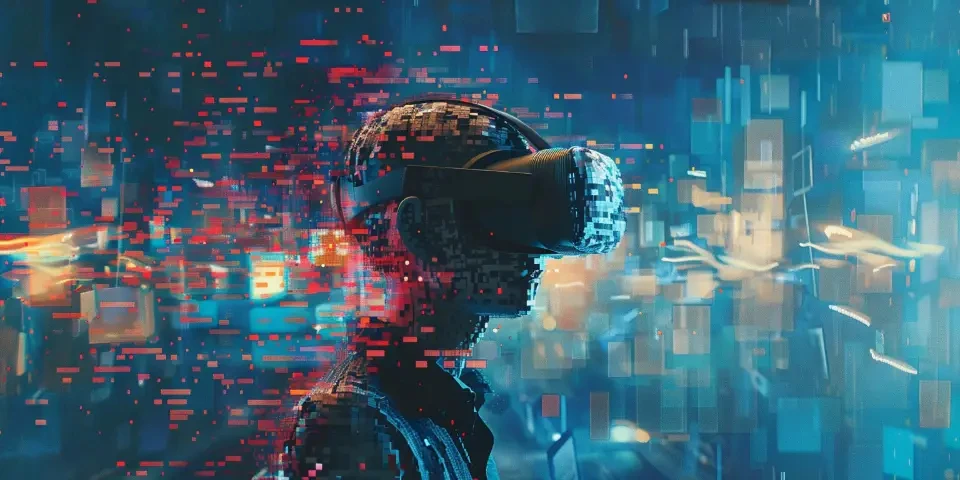Empowering Education Harnessing AI to Transform Learning
In recent years, Artificial Intelligence (AI) has emerged as a revolutionary force in various industries, and education is no exception. The integration of AI technologies into educational practices has the potential to revolutionize learning, making it more personalized, accessible, and efficient. Let's explore how AI can empower education and transform the way we learn.
1. Personalized Learning
AI-powered educational platforms can tailor learning experiences to individual students by analyzing their strengths, weaknesses, and learning styles. Adaptive learning algorithms can identify knowledge gaps and suggest targeted resources for improvement, allowing students to learn at their own pace.

Bullet points: - AI-powered platforms analyze student data to create personalized learning paths. - Adaptive algorithms recommend resources based on individual needs. - Personalized learning enhances student engagement and retention.
2. Intelligent Tutoring
AI-based tutoring systems provide students with real-time feedback and guidance, simulating a one-on-one tutoring experience. These systems can identify areas where students struggle and offer step-by-step assistance to enhance their understanding. Intelligent tutors can adapt to students' progress and adjust their teaching methods accordingly, leading to improved learning outcomes.
Comparison: - Khan Academy's AI-powered tutoring system offers explanations for math problems. - Duolingo's AI tutor provides adaptive language learning experiences.
3. Enhancing Accessibility
AI technologies can bridge the accessibility gap in education by providing tools and assistance to learners with disabilities. Text-to-speech and speech recognition systems enable visually impaired students to access learning materials, while AI-powered translation tools facilitate language learning for non-native speakers.
4. Efficient Grading
Grading assignments and exams can be time-consuming for educators. AI-powered grading systems, such as Turnitin, utilize natural language processing to evaluate student work. These systems can provide objective and consistent feedback, saving educators precious time and allowing them to focus on teaching and mentoring.
5. Intelligent Content Creation
AI algorithms can generate educational content, including quizzes, exercises, and lesson plans, based on specific learning objectives. This technology can alleviate some of the administrative burden on teachers, enabling them to create engaging and effective learning materials more efficiently.
6. Early Identification of Learning Difficulties
Through continuous data analysis, AI tools can detect patterns indicative of learning difficulties or challenges faced by students. By identifying these issues early on, educators can intervene promptly and provide targeted support, reducing the risk of students falling behind.
7. Virtual Reality (VR) and Augmented Reality (AR) Applications
AI-powered VR and AR applications offer immersive and interactive learning experiences, making abstract concepts more tangible and engaging. Simulations and virtual labs allow students to conduct experiments, explore historical sites, or visit remote locations, bringing a new dimension to education.
8. Natural Language Processing and Language Learning
Natural Language Processing (NLP) technologies enable AI-powered language learning platforms to understand and respond to students' speech or written communication. These tools provide language learners with interactive practice opportunities, offering corrections and suggestions to enhance their fluency.
FAQs:
Q: Will AI replace teachers in the future? A: While AI can enhance the learning experience, a human touch is still essential in education. Teachers provide support, guidance, and social interaction, which AI cannot fully replicate. Q: Is AI in education safe for students' data privacy? A: AI-powered educational platforms must prioritize data privacy and security. Compliance with relevant regulations and policies is crucial for safeguarding students' information. Q: How can AI promote creativity in learning? A: AI can automate repetitive tasks, freeing up more time for students and teachers to engage in creative and critical thinking activities. AI tools can also suggest innovative approaches to problem-solving.
References:
1. Education Week: "Artificial Intelligence: What Educators Need to Know" 2. Forbes: "Can AI Transform Education?" 3. Oxford Research Encyclopedia of Education: "Artificial Intelligence in Education"
At Wemate AI, we believe every day's opportunity for food-themed adventures! Join us to brainstorm culinary mashups like pizza-flavored ice cream! Yum?
Explore your companion in WeMate